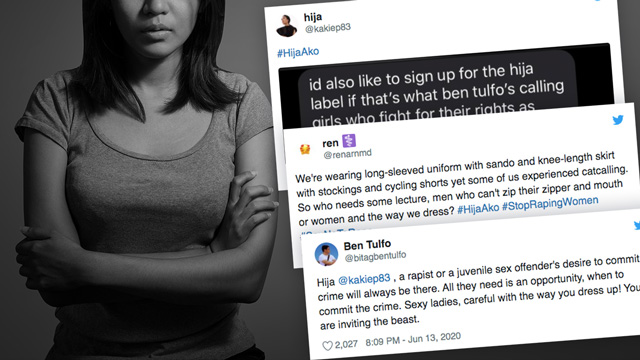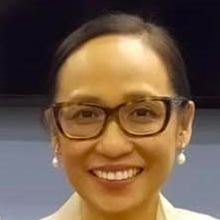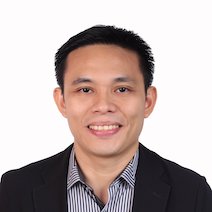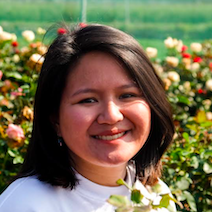![]()
Most fishing communities depend on a slew of traditional and modern forecasts to see a storm coming. At the best times, this gives them ample time to secure their boats and houses, get loans to stock up on food, and brace themselves for at most a week of skipped meals. And it is not resilience that enables this; it’s survival.
But the COVID-19 pandemic hit their shores with sudden and life-altering impacts from both the pandemic and the lockdowns at its heel, exacerbating their already dire circumstances.
In Andra Pradesh, trawlers were still at sea when the lockdown was announced, docking in an almost empty port – no buyers waiting at the shore, fishmeal processing plants closed.
Today, many fish ports have either scaled down or closed as month-long lockdowns remain in place. In Java, where four-fifths of COVID-19 cases in Indonesia were found, fishers fear choosing between feeding their families or risking exposure because of poorly equipped harbors. In Tamil Nadu and Kerala, fishing ports have shut down altogether – incurring an estimated monthly loss of US$896 million for the fishing industry. In West Africa and East Asia, fishing activities dropped between 60-80%. (READ: Net loss: Virus hammers Senegal's fish exporters)
As the world grapples with the continuously unfolding crises in public health, economy, and food security, fishing communities face exacerbated hunger, job insecurity, and uncertainty of survival.
Trade and tourism collapse
Abrupt supply chain failures and closure of restaurants have also resulted in massive unemployment and insecurity for those working in aquaculture and commercial fishing. Prices for lobster, crab, halibut, and other high value catches dropped so low in the past months that operators would rather stay on the shore than fish at a loss. Aquaculture in the Global South, on the other hand, is highly dependent on both global demand and fishmeal imports. In both cases, fish workers and daily earners along the supply chain bear of the brunt of massive unemployment and job insecurity.
Besides, the sharp freeze in tourism revenues has particularly hit coastal economies and many small island developing nations (SIDS). The dangled incentives of the "blue economy" paradigm and declining valuation of small-scale fishing industries have forced many villages to increasingly rely on tourists for income. But with most flights grounded, both community revenues and conservation efforts are in peril.
Around the world, policies of social distancing effectively decommissioned hundreds of thousands of small boats used by small-scale fisherfolk. Globally, there are approximately 108 million people directly employed in small-scale fisheries including post-harvest processing and marketing. In Namibia, artisanal fishers were ordered to halt fishing operations altogether as they were not deemed essential to national food security.
Women make up half of the small-scale fishers, up to 70% in aquaculture, and at least 80% in post-harvest processing and selling. Those in fishmeal plants mostly work in cramped up spaces which may become a “hotspot” for COVID-19 spread. At least 81% of artisanal fishers’ catch goes to local consumption so bans in motorcycles and logistics chokepoints mean most women cannot sell the harvests like before.
Pre-existing vulnerabilities
In many fishing villages, fish workers and their families live precariously on daily loans and wages. In a recent study, researchers found that some fish workers in large commercial fishing vessels work in slave-like conditions. Mostly migrants from Indonesia, Cambodia, and Malaysia, some fish workers in the Pacific routinely experience overwork, withholding of wages, debt bondage, and physical and sexual violence. Globally, some 21 million people are trapped in the vicious cycle of transnational slave labor in both legal and illegal fishing boats. (READ: Food security frontliners: Coronavirus lockdown pushes farmers, fisherfolk into deeper poverty)
In extreme cases, fish workers are held onboard their ill-equipped ships for weeks before docking, leaving their families to starve. In India, migrants fish workers are stranded inside their boats without adequate food and water. Until last month, tens of thousands are still stranded from several states including Gujarat, Tamil Nadu, Kerala, Karnataka, Maharashtra, and Goa. As the huge majority of them work in monthly contracts, employers are under no obligation to keep them in payrolls when fishing operations cease.
Similarly, small-scale fishers live off their daily catch with little to no access to social services and without safety nets. In a third of countries with a significant fisheries sector, average incomes of artisanal fishers fall below the poverty line. While they contribute up to a third of fish consumed by humans directly, they remain the most poor and vulnerable in developing countries.
Old and new threats resurface
Seafood is a multi-billion-dollar global industry but is riddled with systemic inequalities and exploitation. A recent landmark study found that higher-income countries are responsible for 97% of total fishing effort in both the high seas and the global exclusive economic zones (EEZs). To boot, China, Taiwan, and South Korea alone constitute two-thirds of fishing efforts in poor nations' EEZs in 2017. This is especially devastating for poor fishing villages in West African countries like Equatorial Guinea, Guinea Bissau, Sierra Leone, and Senegal where overfishing takes a toll on poor coastal communities.
In Guinea alone, where 75% of people rely on fisheries for protein intake, some 80% of industrial fishing effort in the EEZ are being done by Chinese flag-bearing vessels. Earlier studies found that some foreign vessels used the 2018 Ebola scare to encroach in their waters, and fishers are afraid that it’s happening again. Similarly, highly subsidized vessels from European countries like Spain cause overfishing and overexploitation of fish stocks in the region. Massive government contracts and fishing licenses handed over to foreign vessels often displace domestic fishers and put an untethered strain on marine resources.
Decades of neoliberal policies in ocean management, corruption, and historical neglect to small fishers’ rights has entrenched the wide inequity in exploiting this common good.
While many fishing villages remain on lockdown, some governments are renegotiating licenses with foreign vessels and oil exploration companies, pursuing development aggression that displaces fishers, and reneging to encroachment from foreign countries. In every aspect, poor fishers and fish workers lose out. Although inequality is a multifaceted phenomenon, it only has one face for the poorest of the poor: hunger. And this is especially true today amid the impacts of the pandemic.
Shifting winds?
The "blue growth" paradigm has failed to protect vulnerable fishing communities and poor nations’ food security but instead concentrated the ocean’s resources to a handful of nations.
Fisheries constitute more than half of protein consumption in non-landlocked countries, and up to 80% in SIDS and poor countries – playing a huge role in food security. However, recent studies found that fishmeal for wealthier nations’ aquaculture is depriving the poorest communities of nutrient-rich wild fish. Furthermore, the falling catch of artisanal fishers could plunge 850 million more to malnutrition globally.
In India where the fisheries sector contributes approximately 1% of the GDP and employs over 14 million people, massive unemployment in the sector is a double whammy for food security. It’s estimated that half the workforce in the country lost their jobs, mostly informal workers including artisanal fishers and fish workers. More than 85% of West Africans forced to stay at home are now either skipping meals or eating less because of the lockdown.
As the globe celebrates World Oceans Day, it’s important to note how this abundant resource is at the center of huge inequalities and exploitation. As with many things, COVID-19 is exposing the unjust and unsustainable systems in place which puts the burden to the poorest communities in times of crisis.
Amid the pandemic, States in the Global South must act swiftly to protect and support small-scale fishers, harvesters, and fish workers through cash aid and production support. Social safety nets must be put in place to shield the blue frontliners against the impacts of the COVID-19 prevention policies.
To fully address the structural inequality in fisheries and safeguard domestic food security, however, radical reforms should be the top priority. Ownership and control of EEZs must be put back in the hands of domestic fishers, especially small-scale fishers. Just, equitable, and sustainable fisheries must be developed with and for the most vulnerable fishing communities. Similarly, States must guarantee protection for fish workers in commercial fishing vessels against precarious employment and risky working conditions. (READ: U.P. marine scientists: 'West Philippine Sea is for Filipinos')
Fishers are on the frontlines of ensuring nations’ food security and the ocean’s health, and it’s high time the protection of their rights set sail. – Rappler.com
John Carlo Mercado is currently a policy advocacy writer for Peoples Coalition on Food Sovereignty. He has been a land and food rights activist for 15 years and has worked with grassroots organizations in the Philippines and elsewhere.
You can catch him on Twitter at @darnitJC.
![]()









































